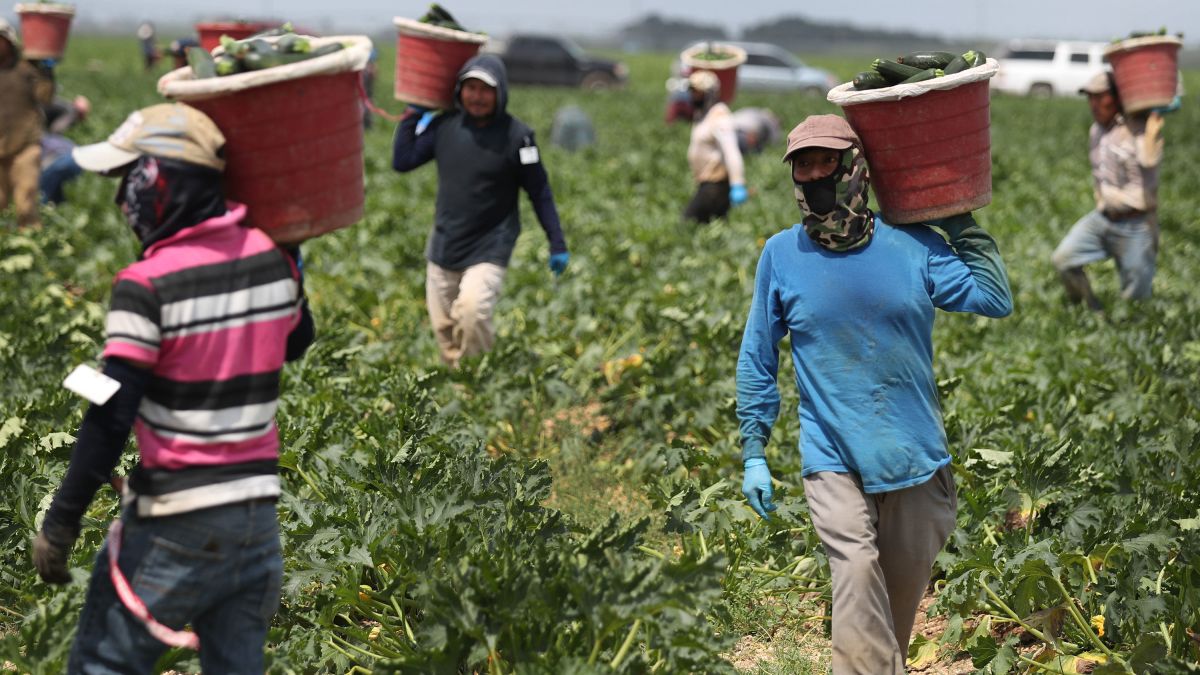National Study: Undocumented Immigrants Contribute Almost $700 Million in Virginia Taxes a Year
Courtesy of the Commonwealth Institute
Immigration policies have taken center stage in public debates this year, but much of the conversation has been driven by emotion, not data. A new in-depth national study from the Institute on Taxation and Economic Policy aims to help change that by quantifying how much undocumented immigrants pay in taxes – both nationally and in each state.
“This study is the most comprehensive look at how much undocumented immigrants pay in taxes. And what it shows is that they pay quite a lot, to the tune of nearly $100 billion a year nationally,” said Marco Guzman, ITEP Senior Policy Analyst and co-author of the study. “The bottom line here is that regardless of immigration status, we all contribute by paying our taxes.”
Here in Virginia, undocumented immigrants contributed $689.8 million in state and local taxes in 2022 — a number that would rise to $856.9 million if these taxpayers were granted work authorization, according to the study.
In Virginia and 39 other states, undocumented immigrants pay higher state and local tax rates than the top 1% of households in their states. Overall, undocumented immigrants pay 7.9% of their incomes toward state and local taxes, while the top 1% of households pay 7.2%, reflecting Virginia’s upside-down tax code. Undocumented immigrants would pay 9% of their income toward taxes if granted legal status.
Despite their significant tax contributions, undocumented immigrants are barred from accessing many of the programs they contribute to. Nationally, more than a third of the tax dollars paid by undocumented immigrants are toward payroll taxes dedicated to funding programs – like Social Security and Medicare. These policy barriers can impact multiple generations. For example, undocumented children are currently barred from accessing Medicaid, FAMIS (Virginia’s CHIP Program), and Affordable Care Act health coverage. As a result, 48% of undocumented children living in Virginia do not have health coverage, compared to 3.8% of children who are U.S. citizens. Undocumented immigrants also do not have the same access to meaningful tax credits as their similarly-situated peers, facing additional barriers to the Child Tax Credit and being barred from accessing the Earned Income Tax Credit.
“This study is another reminder that undocumented immigrants are vital to our communities, yet they face many barriers to fully participating in those same communities and accessing critical resources,” said Freddy Mejia, Policy Director at The Commonwealth Institute. “Moving forward, lawmakers should make more inclusive choices, including passing a Cover All Kids program, so that everyone in Virginia can thrive, no exceptions.”
The General Assembly considered proposals by Del. Tran and Sen. Hashmi during the 2024 session to create a health coverage program available to roughly 13,000 children from low-income families regardless of immigration status. The full Senate passed its proposal and included funding to start the program in the Senate budget proposal for the second consecutive year. However, these efforts were stalled in the House Appropriations Committee.
While the ITEP study is the most comprehensive analysis of taxes paid by undocumented immigrants, it is worth noting that it does not reflect the broader contributions, economic or otherwise, that immigrants make to our communities. Years of data highlighted by The Commonwealth Institute show that, overall, immigrants in Virginia are well educated, are more active in the labor market compared to U.S.-born Virginians, and are much more likely to create, own, and operate an independent business. Taking those economic ripple effects into account would likely reveal undocumented immigrants to have an even larger significance to our communities and our shared resources.



